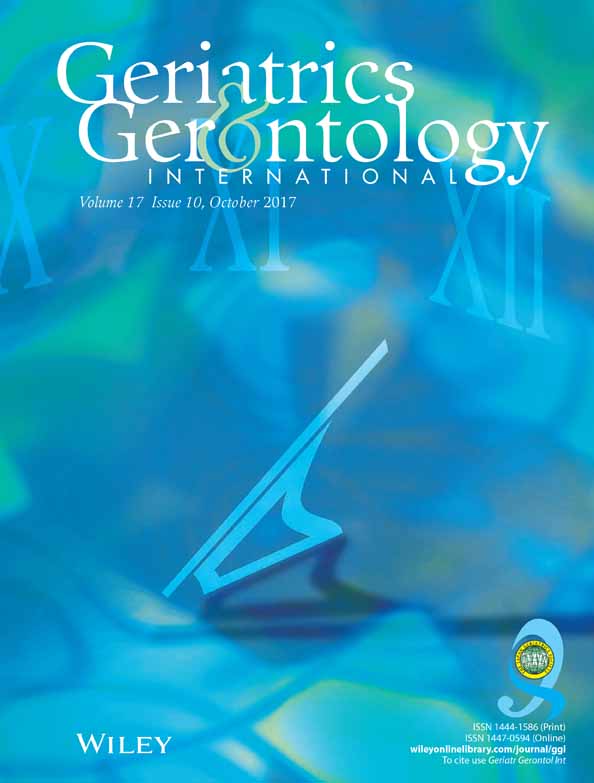Memory performance on the story recall test and prediction of cognitive dysfunction progression in mild cognitive impairment and Alzheimer's dementia
Abstract
Aim
To determine the factors that influence diagnosis and differentiation of patients with mild cognitive impairment (MCI) and Alzheimer's dementia (AD) by comparing memory test results at baseline with those at 1–2-year follow up.
Methods
We consecutively recruited 23 healthy participants, 44 MCI patients and 27 patients with very mild AD according to the National Institute of Neurological and Communicative Diseases and Stroke/Alzheimer's Disease and Related Disorder Association criteria for probable Alzheimer's disease and Petersen's clinical diagnostic criteria. We carried out detailed neuropsychological tests, including the Story Recall Test (SRT) and the Seoul Verbal Learning Test, for all participants. We defined study participants as the “progression group” as follows: (i) participants who showed conversion to dementia from the MCI state; and (ii) those with dementia who showed more than a three-point decrement in their Mini-Mental State Examination scores with accompanying functional decline from baseline status, which were ascertained by physician's clinical judgment.
Results
The SRT delayed recall scores were significantly lower in the patients with mild AD than in those with MCI and after progression. Lower (relative risk 1.1, 95% confidence interval 0.1–1.6) and higher SRT delayed recall scores (relative risk 2.1, confidence interval 1.0–2.8), and two-test combined immediate and delayed recall scores (relative risk 2.0, confidence interval 0.9–2.3; and relative risk 2.8, confidence interval 1.1–4.2, respectively) were independent predictors of progression in a stepwise multiple adjusted Cox proportional hazards model, with age, sex, depression and educational level forced into the model.
Conclusions
The present study suggests that the SRT delayed recall score independently predicts progression to dementia in patients with MCI. Geriatr Gerontol Int 2017; 17: 1603–1609.




